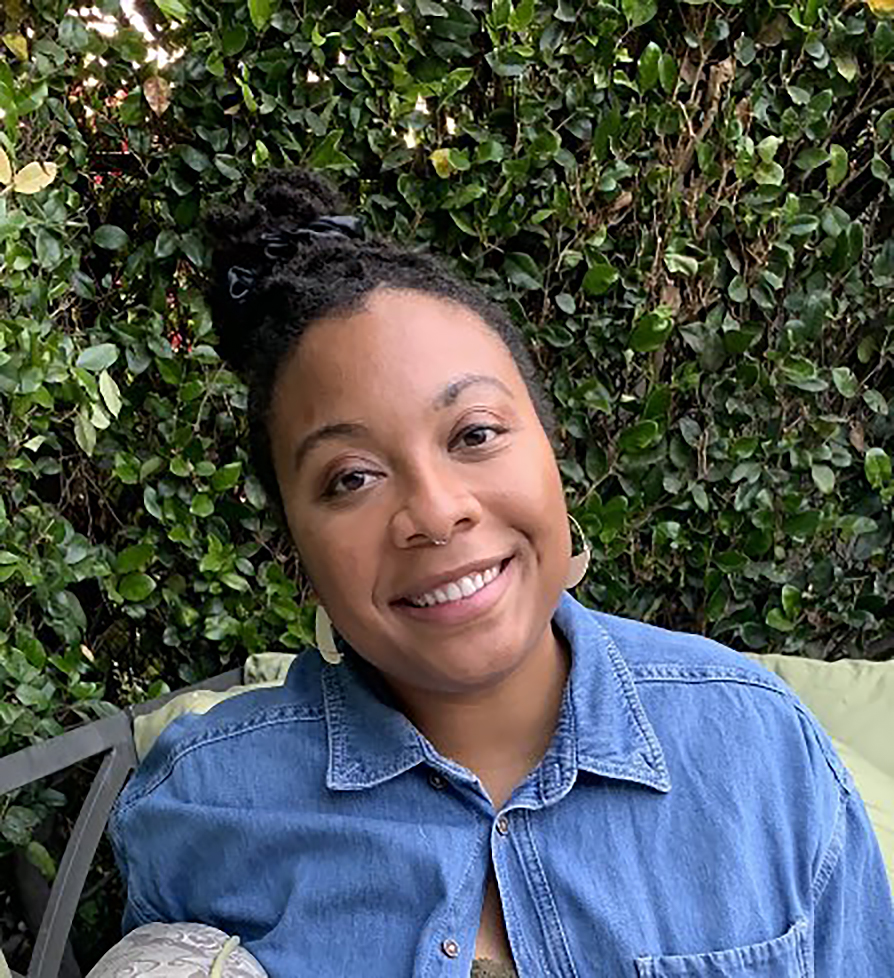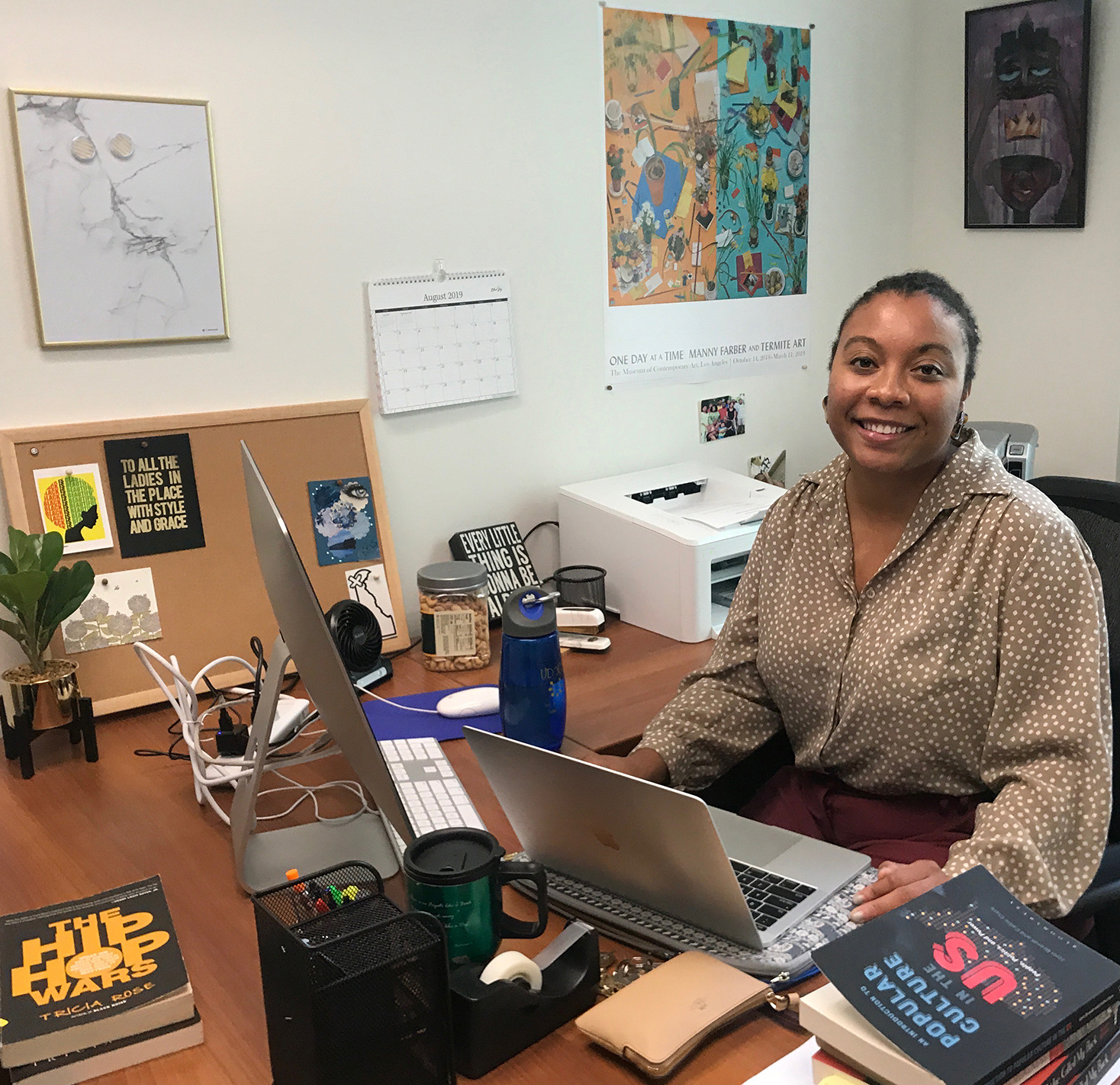Hair and Body Politics
Kristin Denise Rowe, Ph.D., Assistant Professor of American Studies, studies Black feminism, beauty, and Black popular culture.

“Body politics are key because bodies are battlegrounds for so many tensions and debates both locally and globally. Bodies are key to how we come to understand ourselves--especially as raced, gendered, and sexualized subjects. Bodies exist in a larger particular political, social, and historical context, yet we as individuals exercise agency every day in how we choose to move, carry, and adorn our bodies. We cannot understand any of the most pressing issues of our time around medicine, health, race, sex, gender identity, violence, sexual orientation, size, dis/ability, and more without understanding embodied experiences and body politics.”
Kristin Denise Rowe, Ph.D., Assistant Professor of American Studies, studies Black feminism, beauty, and Black popular culture. Her research examines cultural representations of Black women, specifically questions around standards of beauty and depictions of Black natural hair.
“At the intersection of social media usage, a trend in organic products, Black female celebrities “going natural,” and a widespread interest in do-it-yourself culture, the late 2000s opened a space for Black American women to stop chemically straightening their hair via products known as “relaxers” and begin to wear their hair natural,” states Rowe.
This trend has resulted in an Internet-based cultural phenomenon now known as the “natural hair movement.” Within the context of this natural hair movement, new conversations around standards of beauty, hair politics, and Black women’s embodiment have flourished within the public sphere—largely aided by new media. Rowe’s research maps these conversations by exploring contemporary expressions of Black women’s natural hair within cultural production.
Using textual and content analysis, Rowe investigates various sites of inquiry: natural hair product advertisements and Internet representations, as well as the ways Black women’s hair texture is evoked in recent song lyrics, television scenes, and non-fiction prose by Black women. Each of these sites of inquiry—“hair moments”—offers a complex articulation of the ways Back women experience, share, and negotiate the historically fraught terrain that is Eurocentric standards of beauty and racialized body politics. The project sits at the intersection of many still developing ideas and trends: the Internet-based contemporary Black women’s natural hair movement; the relationship between social media and cultural representations; and an interdisciplinary melding of pop culture studies, gender studies, and Black Studies. Ultimately, the project uses hair as a vehicle for recovering agency and interiority (the quality of being focused on one’s inner life and identity) within Black women’s uses of their bodies, within a cultural landscape that constantly tries to tell them who and what they are.
Something that has surprised Rowe is the variety of people who are intrigued by her research on beauty culture or have it resonate with them somehow. “I have always expected and experienced that certain populations -- especially women of color -- will be interested in my work. However, people of many races, genders, sexualities, and backgrounds have commented on how they connect to the work. It turns out, many of us grapple with questions around beauty norms and culture, the politicization of bodies, and our place within all of this “stuff.” It has been really rewarding and humbling,” she explains.
Rowe traces her interest in these questions around body politics, beauty culture, race, and gender back to her childhood. “I was a dancer, as well as a Black girl in a racially diverse college town (Newark, Delaware). Being a young Black female dancer meant that I was already always thinking about bodies,” she explains.
While an undergrad at the University of Delaware, Rowe left North America for the first time to study abroad in Accra, Ghana (West Africa). “The studies of gender, politics, and women’s political organizing,” she mused, “ pushed me out of my then humanities-based comfort zone. New concepts around international relations and political science challenged me for the better.”

“Be open to feedback and learning more; yet, trust your own vision and follow your own passion…Do not allow trending topics in academia, your professors, or your colleagues to tell you what you should care about researching or writing. Be prepared for deep thought, study, and introspection--We live in a society of short attention spans, where deep reading and study is sometimes foregone in favor of hot takes and quick recaps.”
Angela Davis, bell hooks, and the women in her family are heroes to Rowe. “All of the above demonstrate love in action through their work.”
All additional photos in Spark page are decorative background images of Natural Hair.
